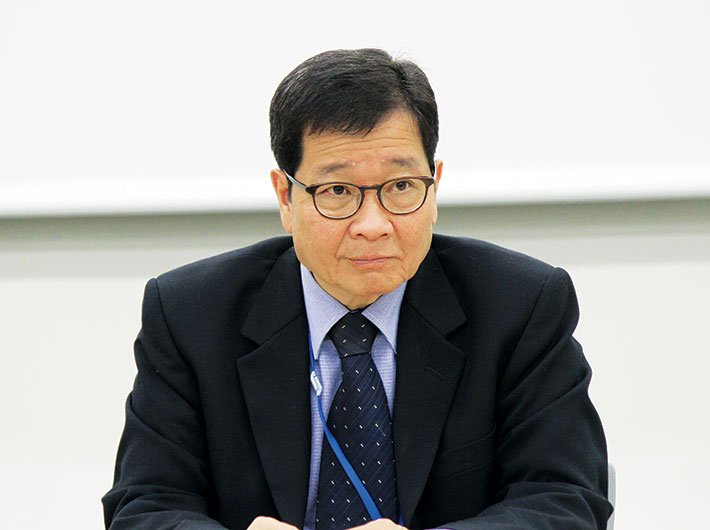An interaction with Santhi Kanoktanaporn, secretary general, Asian Productivity Organisation
Eastman Kodak was the first company to introduce the digital camera in 1975. Yet, it continued to prioritise photographic films, only to be wiped out from the market. Nokia once held a dominant market position in cell phones. So did BlackBerry in smartphones. Now, the market share of these companies has shrunk drastically. These are a few examples of the impact of changes in technology and consumer preferences. Now, a new wave of technological revolution – driven by Internet of Things, cloud computing and data analytics – is expected to sweep the manufacturing and the services sector. Futurists believe that this ‘fourth industrial revolution’ will replace humans with robots and artificial intelligence, leading to huge job losses. The Asian Productivity Organisation (APO), an inter-governmental body of 20 countries, works for sustainable socioeconomic development of member countries through enhanced productivity using new processes and technologies. In an interaction with Pratap Vikram Singh at its Tokyo headquarters, Santhi Kanoktanaporn, APO’s secretary general, talks about the opportunities and the challenges of ‘industrialisation 4.0’. Edited excerpts:
Can you elaborate the term ‘sustainable productivity’?
No matter how good you are [as a manufacturer or service provider], you need to know and cater to the [changing] needs and expectations of the consumers. Only then your productivity will be in the right direction. This is what we call ‘sustainable productivity’.
The APO is planning to build this foresight capability for our member countries. We are setting up a platform that will collect data from 4,000-5,000 sources in various academic research labs, newspapers, etc. The machine will use artificial intelligence to analyse the data and will identify the driving force behind occurrence of major events. For example, in February, west America witnessed heavy snow. Even Egypt has witnessed snowfall. These are the result of climate change. Once we have identified this driving force, we can plan our future. Different governments may have different positions on global warming but they can make policies accordingly to reduce their carbon footprint.
We are introducing a tool called ‘scenario planning’. The tool will help us in identifying an emerging trend. If you can spot a pattern over a period of time, it can be used as an opportunity. We have to take the long view. We should shape the future, not only respond to it.
What are APO’s major interventions for India?
We would like India to be the centre of information technology not only for itself, but for all member countries of the APO. In this era, one of the things emerging very strongly is the fourth industrial revolution. To enable any country to adopt this industrial revolution, it is necessary to firstly have high-speed internet connectivity. In Japan, for example, the cheapest internet pack offers 10 mbps speed. It is ready for industrialisation 4.0. On the contrary, countries lacking in high-speed internet will not be able to reap benefits of newer technologies. Secondly, you need analytics capability to analyse big data. We have been working with India to establish a centre of excellence in this area.
What technical assistance does APO provide to less advanced countries?
We are setting up a model factory with one of our partners so that our member countries can send trainers to experience the next phase of automation. Once, I visited a factory with cyber-physical manufacturing of shampoo. On the conveyor belt, bottles of different shapes were attached to sensors. When they moved, they sent a signal to the fuelling machine. One machine told another that it has to put yellow (or some other colour) shampoo in a specific amount. Here, machines talk to machines. Not only that, the customer can also talk to the machine. If a customer wants 50,000 bottles, and if the machine can provide, say, only 30,000, then it will send a message to another factory to produce the remaining amount. All this is done without human involvement. Hopefully, APO will be able to set up such a factory. It is a three-step development. First, we will create awareness. Then we will go to policymakers and formulate standards. Finally, we will engage society in ascertaining needs and expectations.
What policy changes would APO suggest for better preparedness for industrialisation 4.0?
[Countries] have to anticipate the future. Policymakers need to have foresight capability, otherwise policy interventions won’t help. For industrialisation 4.0, we have to think about the kind of technology required. APO will be organising training sessions to create awareness.
If countries want to increase productivity, they have to go for inclusive workforce, tapping those at the bottom of the pyramid. Asia is still a man’s world. We have to encourage women to come out of their homes and join the workforce. For example, in Japan, women are given nine months maternity with full pay. Such incentives will increase productivity.
Singh’s Japan trip was funded by the APO for its ‘multicountry observational study mission for mass media practitioners on innovation and productivity promotion in SMEs’.
(The interview appears in the March 16-31, 2017 issue of Governance Now)

